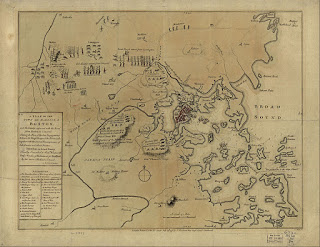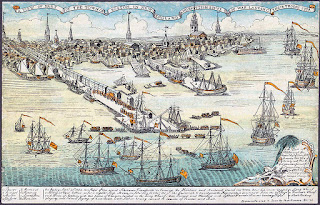Name a Weakness of the Articles of Confederation ?
Name a Weakness of the Articles of Confederation ?
https://billofrightsinstitute.org/founding-documents/bill-of-rights/
https://www.archives.gov/founding-docs/bill-of-rights/what-does-it-say
A bill of rights as provided in the ten original amendments to the constitution of the United States in force December 15, 1791. [n. p. 195-]. A Bill of Rights as provided in the Ten Original Amendments to The Constitution of the United States in force December 15, 1791.
Article VI In all criminal prosecutions, “the accused shall enjoy the right to a speedy and public trial, by an impartial jury of the State and district wherein the crime shall have been committed, which district shall have been previously ascertained by law, and to be informed of the nature and cause of the accusation; to be confronted with the witnesses against him; to have compulsory process for obtaining Witnesses in his favor, and to have the Assistance of Counsel for his defence.
Article VII In Suits at common law, where the value in controversy shall exceed twenty dollars, the right of trial by jury shall be preserved, and no fact tried by a jury shall be otherwise re-examined in any Court of the United States, than according to the rules of the common law.
Article VIII Excessive bail shall not be required, nor excessive fines imposed, nor cruel and unusual punishments inflicted.
Article IX The enumeration in the Constitution, of certain rights, shall not be construed to deny or disparage others retained by the people.
Article X The powers not delegated to the United States by the Constitution, nor prohibited by it to the States, are reserved to the States respectively, or to the people.
Questions :
How can the Rights of all people be protected?
Which should have more power, the states or the national government?
After the first Continental Congress some colonists began to accumulate arms and ammunition
Rumors of weapons build up began to spread
 | |
| 1775 map of the battles and of the Siege of Boston |
 |
| A National Park Service map showing the routes of the initial Patriot messengers and of the British expedition |
https://www.history.com/topics/american-revolution/battles-of-lexington-and-concord
The Battles of Lexington and Concord were the first military engagements of the American Revolutionary War.
https://en.wikipedia.org/wiki/Battles_of_Lexington_and_Concord
General Thomas Gage (British Military Commander and Governor of Massachusetts) heard rumors decided to raid a suspected ammunitions site in Concord, Mass.
 |
| Thomas Gage |
Paul Revere warns the colonial militia units (minutemen) of Gage’s plan
 | |
| Silversmith Paul Revere and several other messengers on horseback sounded the alarm that the regulars were leaving Boston. |
http://www.history.com/topics/american-revolution/paul-revere
Gage’s troops arrive in Lexington, just outside of Concord, and shots were exchanged between the Brits and Minutemen
Gage continues to Concord, searches the empty ammunition storage.Fighting continued throughout the day
"shot heard round the world"
 |
| The reconstructed North Bridge in Minute Man National Historical Park, Concord |
273 British casualties
95 American casualties
The Revolution had begun
The Second Continental Congress
Although no legal authority to exist, it operated as the unifying government throughout the Revolution
By 1775 most British governors had deserted their posts in the Colonies and returned to England .Delegate opinions in the Congress varied and many feared total independence from Britain because of trade and safety concerns.Most expressed concerns over the lack of representation in Parliament, not the power of the monarch.Reluctantly decided to create an army
The Continental Army
Relatively unknown man from Virginia
Chosen by the Continental Congress to lead the continental army
Significant because it shows commitment to the war throughout the diverse colonies
 | |
| General George Washington was appointed Commander-in-Chief of the Continental Army on June 15, 1775. |
 | ||||||
| 1781 Drawing of Soldiers of Washington's Army |
 |
| Infantry of the Continental Army |
Continental Army – colonists resisting British rule
“Blue Coats,” “Patriots,” “Rebels”
British Army – British and colonial supporters fighting to maintain British Power
“Loyalists,” “Tories,” “Red Coats”
Second Continental Congress Continues its work
Decided to officially declare war
Created a currency – Continental Dollars
 |
| Obverse and reverse of a three pence note of paper currency issued by the Province of Pennsylvania and printed by Benjamin Franklin in 1764. |
 |
| Continental One Third Dollar Note |
Still hoped to negotiate peace with England
Olive Branch Petition
Sent to the King
Blamed Parliament, not the King for the current conflict
Stated loyalty to the monarch and asked that each colony be recognized as independent parliaments subject to the King.
King George rejected the plan and called Americans “rebels, traitors, and enemies.”
The Boston Massacre was a deadly riot that occurred on March 5, 1770, on King Street in Boston. It began as a street brawl between American colonists and a lone British soldier, but quickly escalated to a chaotic, bloody slaughter. The conflict energized anti-British sentiment and paved the way for the American Revolution.
 | |||
| Engraving by Paul Revere |
 |
| George Greville introduced the Stamp Act as a means of increasing revenues from the colonies in the wake of the Seven Years War. |
 |
| Paul Revere's 1768 engraving of British troops arriving in Boston was reprinted throughout the colonies. |
 |
| Enforcing the Quartering Act |
 | |||
| This iconic 1846 lithograph by Nathaniel Currier was entitled "The Destruction of Tea at Boston Harbor"; the phrase "Boston Tea Party" had not yet become standard. Contrary to Currier's depiction, few of the men dumping the tea were actually disguised as Indians. |
 | ||
| n 1973 the US Post Office issued a set of four stamps, together making one scene of the Boston Tea Party |
 | ||
| Join, or Die: This political cartoon by Franklin urged the colonies to join together during the French and Indian War (Seven Years' War). Sons of LIBERTY Adams as portrayed by Paul Revere. 1774. Yale University Art Gallery |
 |
| 1st Row: Samuel Adams • Benedict Arnold • John Hancock • Patrick Henry • James Otis, Jr. 2nd Row: Paul Revere • James Swan • Alexander McDougall • Benjamin Rush • Charles Thomson 3rd Row: Joseph Warren • Marinus Willett • Oliver Wolcott • Christopher Gadsden • Haym Salomon |
 | |
| The Liberty Tree in Boston, as illustrated in 1825 |
 |
| Library of Congress Liberty Tree Monument |
 |
| First Continental Congress 1774 |
https://www.history.com/veterans-stories https://www.history.com/topics/holidays/memorial-day-history Memorial Day is an American holiday,...
